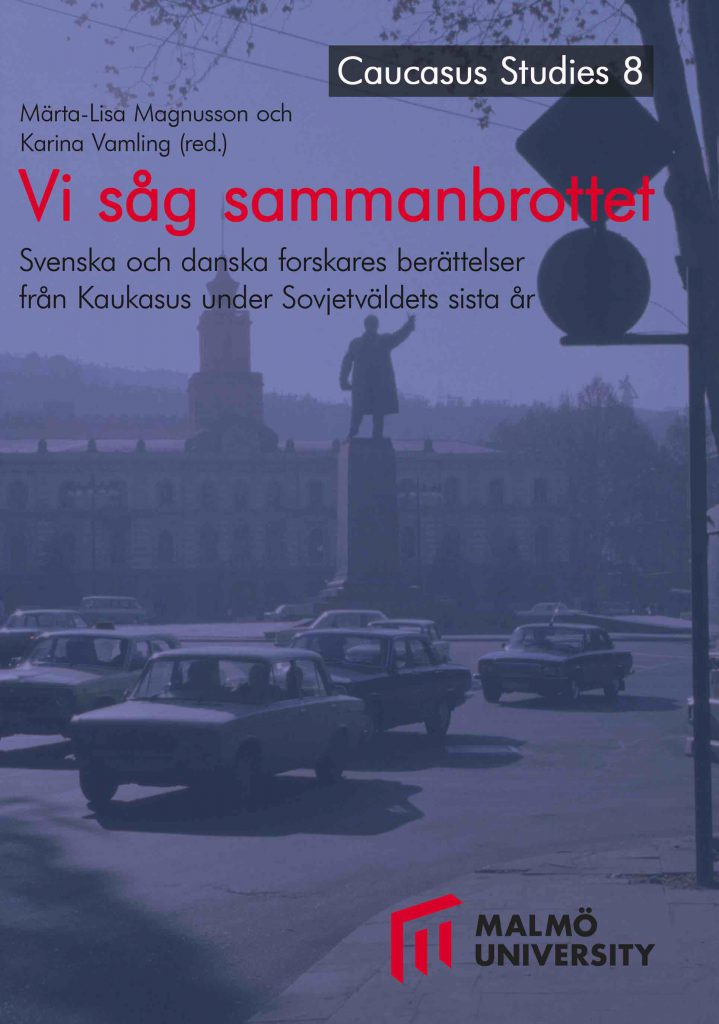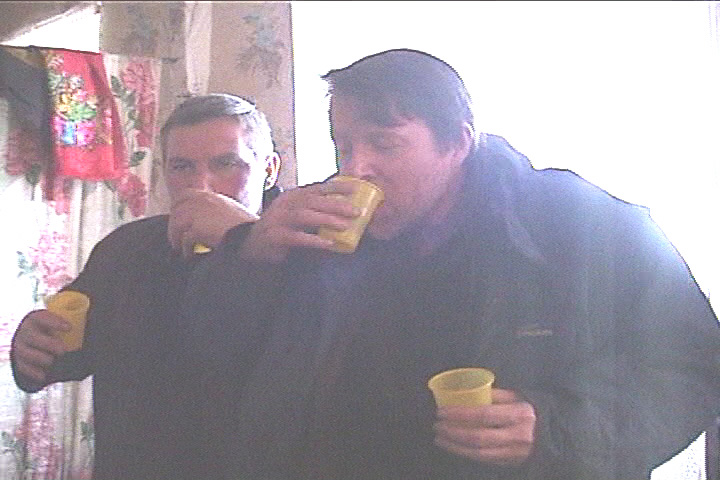“Vi såg sammanbrottet” – Svenska och danska forskares berättelser från Kaukasus under Sovjetväldets sista år
“We witnessed the break-up.” – Six Swedish and Danish researchers on the final years of the USSR seen from the Caucasus, edited by Märta-Lisa Magnusson and Karina Vamling (In Swedish and Danish).
When: December 8, 10.15–11.00. Where: Zoom https://mau-se.zoom.us/j/66199315527?pwd=MXNpemgwVEgxMTVmNVJZTi84TkJOQT09

On Christmas Day 1991 Mikhail Gorbachev resigned as President of the Soviet Union. The country that he had been the leader of, as General Secretary of the Communist party since 1985 and as President since 1990, had ceased to exist. The crucial event that led up to the final collapse was the meeting in Minsk on December 8 1991, when the leaders of the Russian Federation, Belarus and Ukraine decided to establish an interstate organization, CIS, the Commonwealth of Independent States.
In the anthology “We witnessed the break-up” a group of Swedish and Danish researchers recount their experiences in the Caucasus region during the final years of the Soviet Union and the period shortly after. The authors are political scientist Ib Faurby, cultural geographer Lars Funch Hansen, researcher on minority issues Helen Krag, slavicist Märta-Lisa Magnusson, historian and Iranologist Søren Theisen and general linguist Karina Vamling.
The Caucasus, like the Baltic region, was on the outskirts of the Soviet Union, but these two regions were to play an important role in the reform process that Gorbachev initiated in 1985 and that six years later led to the disintegration of the Soviet Union.
In their contributions the authors write about the new movements for independence in the Caucasus and increasing tensions with Moscow, how the Soviet structures at different levels were breaking down and the national cultures became increasingly important. They describe how premodern traditions still play a role, despite Soviet modernization, account for specific cultural features and similarities and also witness deepening ethnic antagonism.
The book is published by Malmö University in the series Caucasus Studies and is available as an ebook (download link) and will shortly appear as print-on-demand.






